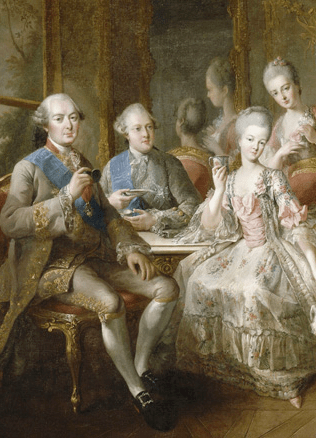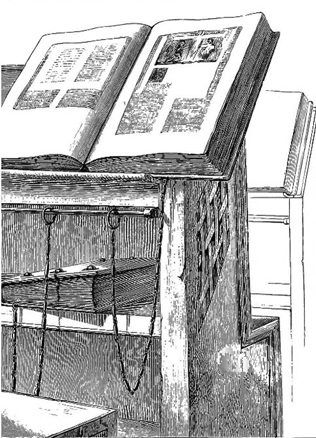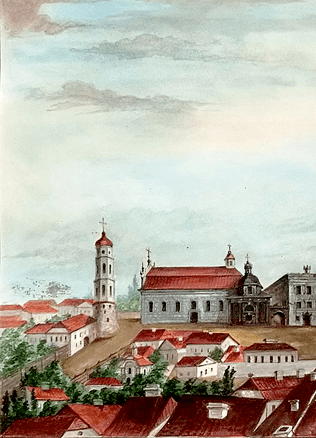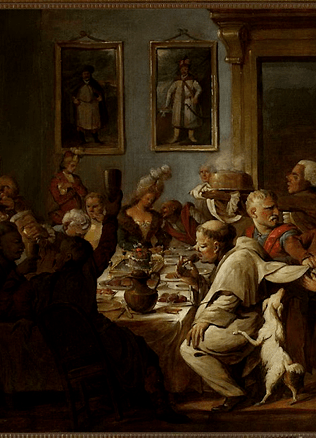The Propaganda of the Uprising
Europe and the United States underwent important political and social changes in the 18th century encouraged even more by a swift spread of information related to the changes as well as by the growing number of its potential recipients. Individuals and political groups used periodical press and proclamations to steer the public opinion that turned into a significant support for those seeking their political, military or other goals.
Teachers of the people
The organisers of the 1794 uprising were very well aware of the importance of the propaganda because the revolt could not be successful without the support from the society. In the early days of the uprising, one of its leaders, Tadeusz Kościuszko, announced the formation of the rebel government, the Supreme National Council, that would both carry its regular executive functions and “shape the public opinion by spreading the national spirit.” It was several months later that it started organising a system for the dissemination of propaganda. The Supreme National Council established the National Division of Instruction under its jurisdiction, which was to take care of the whole system of education and had a duty of “spreading the national spirit through newspapers and other publications as well as through instructions in churches and other public gatherings.” Soon the offices of the National Division of Instruction opened in every district. The leaders of the uprising, however, considered that insufficient, therefore they set up a new official post of a teacher in the newly established administrative units, the superintendences, each of which consisted of about 1,200 households. The teacher was expected to possess a number of virtues. He had to be “well educated, of impeccable reputation, distinguished in his district and with a good name, free from prejudices, aware of local legislation, of a patriotic spirit and zealously affectionate to his homeland.” The teachers were assigned a number of duties the main one being the dissemination of the official announcements; they were also expected to put the news in plain words for the ordinary people and educate them. They had to “explain the usefulness of the official decrees to the people. All the citizens must become aware of the protection by the state, they have to educate [the others] of their sacred duties before the homeland and of their agreed bilateral obligations of those stemming from their estate status commanded by the Divine.”
The propaganda among the peasants was considered particularly important because they constituted the largest yet the most passive part of the society their civil rights utterly nonexistent.
Newspapers read aloud from the pulpits
The rebels in Lithuania were particularly active in luring the peasants into the uprising. The Supreme National Council of Lithuania would publish peasant-intended proclamations and universals both in Polish and Lithuanian. It was the duty of the parish parsons to read and explain them to the general public. Many clergymen took chances to persuade the peasants get involved in the uprising. Here is what one of the priests said in his sermon published by the Vilnius National Newspaper (Gazeta Narodowa Wileńska): “I will teach you, husbandmen, what you must do for your Homeland and for the land that feeds you and for all those who work in your benefit so that no one oppresses you; I will teach you what you have to accomplish in order to live in your homes calmly and safely together with your wives and children. Brotherly ploughmen! Your leaders have already started thinking about you in order to teach you to read and to write and to make you equal with all the people because everyone now is convinced that you are the most valuable treasure and help in saving our beloved Homeland because your venerable hard-working hands plough, harrow and hoe the land everyday even to the bloody sweat to feed all of us and it is your hands, armed with scythes and lances, that can defeat and overwhelm the enemies of our Homeland with the greatest might – the enemies of your land, your wives, your children and your measly possessions.”
The periodical press published by the insurgents helped in bringing the information on the military victories and current events in the country to the public quickly and as broad as possible. The Vilnius National Newspaper became the official publication of the insurgents in Lithuania. Its editor, Filip Neriusz Golański, was open in admitting he would publish selected information to build a positive sentiment about the uprising. He wrote in the first issue of the newspaper: “We will inform comprehensively and truthfully about everything that the nation needs to know, the things that stimulate honour, awakes zealousness, and raises the spirit of patriotism. In the fight between freedom and oppression every individual, a citizen and the dweller of this earth, inspired by heroism, must wow all of his existence to the defence and the common good. The staff of the National Newspaper hopes that they will only dedicate their quills to render true services and show undoubted examples of love to their homeland.”
The newspaper was published twice in a week. It reported about the doings of the Supreme National Council, made its universals and proclamations public, informed about the developments in Lithuania, Poland and abroad, published the lists of donors of the uprising.
Address to the enemy
The insurgents’ propaganda was not limited to the borders of the country. They distributed their proclamations among those who tried to suppress the uprising as well. The Supreme National Council of Lithuania addressed the soldiers of the Russian army too, hoping that at least some of them would be tempted to exchange their tough 25-year military service for a free life: “The Russian soldiers […] have been handed over to the stern authority of their savage commanders. We know you as our brothers and neighbours and we feel compassion for your destiny because while suspiring for freedom you cannot have and taste it remaining under the rule of the barbarians. You will discover inside the mind of a Pole respect for humanity and you will want to help yourself after you acknowledge that the tyrant treats you almost as an animal, you will also find help and true brotherhood for yourselves and for your progeny. […] The humanity of a Pole will forgive you, soldiers, because you are now forced to commit crimes against humanity and Christianity, and you will not be refused an asylum in the free land of Poland.”
The insurgents sought for support in Prussia too even though the country was involved in the suppression of the uprising. While organising a military action in Prussia, Konstanty Jelski, general of the Grodno district, wanted the majority of the Prussian army to remain inside their boundaries. Hence, he asked the people of Prussia for help by explaining them the goals of the uprising: “I am on my way led by a goal that every citizen who aspires for freedom and wants his possessions be preserved is protected by our multitudinous army. […] But if anyone from the military or the civilians takes the side of despot and tyrant, he will be considered an enemy of people and freedom. If such a person falls victim to the zeal of people fighting for freedom, he will be himself to blame. He will bear the punishment he deserves. […] See how sweet freedom is to us. We have left our homes, our wives and children in order to free ourselves from captivity imposed unto us and we expect brotherly welcome because we want to see you just as free as we are.”
During the uprising, propaganda was a powerful tool to keep the insurgents’ spirit up and to bring new flocks of rebels together. However, the propaganda alone proved insufficient for the victory.
Eduardas Brusokas



